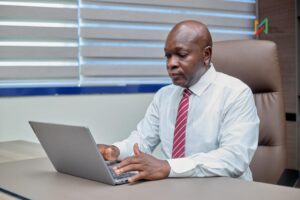
Boakye Kyeremateng Agyarko
By Boakye Kyeremateng Agyarko
Every four years or so, the New Patriotic Party (NPP) and, to a lesser extent, the other parties launch themselves into an engineered orgy of turbulence centered on the competition for office within the political space. This maelstrom of contending personal and vested interest has always threatened the cohesion of the party and has affected performance in each impending general election. The election of the polling station executives sometimes turns out to be a dodgy exercise in the selection of people to act in that capacity. The election of constituency, regional, national officers, on each occasion, throws up unsavory antics with all its dangerous posturing.
However, it is the selection or election of parliamentary candidates that poses the most danger to the political order. In some places, the contest becomes so venomous that you may conclude there will be no life after the contest.
Now, I am not here to bash competition as a bad thing in itself. Indeed, a healthy competition provides those properly vested with the rights and authority to make a choice or decision, the necessary information and attributes about each contestant in order to make the right choice or the choice that they deem most suitable for themselves. Without competition or the competitive process, which separates the wheat from the chaff, we end up with impositions that are often ill-advised or ill-situated.
1965 election
The July 1965 election illustrates this absurdity of non-competitive election.
In May 1965, the Minister of Justice, Mr K O Ofori-Atta introduced the Electoral Provisions Bill in parliament, which outlined the electoral provision of the Constitution’s regulating electoral procedures. In its effect, the Bill sought to implement the new dispensation of one – party state. The muddled thinking that permeated the Bill stemmed from the creation of a single, all-embracing national party on one hand, and the idea of popular representation on the other.
The first provision of the Bill sought to restrict candidates for future presidential election of a president in the event that the election would be contested.
In its un-amended form, Article 11 gave members of parliament the right to determine a contested presidential election by secret ballot.
However, the new Bill provided for only one nominee to stand for a presidential election. Hon Kofi Baako, in a debate on the floor of the House on May 18, 1965, gave the following interpretation to the Bill: “The person who is going to be president will be elected by the national party. So there will be only one person, and it will not be contested”. Simply put, the Convention Peoples’ Party(CPP) had no intention of allowing even rival presidential candidates from within the party to contest, much less independents.
At the level of parliamentary elections, the situation, save a few embarrassing gaps, was repeated.
The Central Committee of the CPP handpicked all the candidates, allowing no others to stand. All were declared to be returned unopposed without even the formality of a vote.
The bizarre aspect of this process was that it allowed the Central Committee to assign persons who became automatic MPs to any constituency they so chose. So, for example, Kwesi Ghapson, a lecturer at the Kwame Nkrumah Ideology Institute at Winneba and a man from the Central Region, was assigned to become the MP for Abuakwa in the Eastern Region. He did not come from Abuakwa. He did not hail from Abuakwa. He was not a resident of Abuakwa. He had no connection whatsoever with Abuakwa, yet he had been selected, without the remotest consent of the people of Abuakwa, to become their representative. So how on earth could he have represented a people he was not connected to and a land that was “alien” to him? If the people of Abuakwa were unhappy with his performance as their MP, what were they to do? Under this “forced” representation, the only contribution he is reported to have made on the floor of the House, as the Honorable member representing Abuakwa was, “when Osagyefo is speaking, everyone says ‘yea’, ‘yea’. Are they sincere? I, Kwesi Ghapson, the member for Kibi, am not sincere. All of us are not sincere because we say yes, even when we mean no.” The import of the above is that the CPP had spawned a system and an environment that created “yes men” and hypocrites who knew how their bread was buttered.
Unmitigated disaster
The point is, we have been down this path before and the outcome for the CPP and the nation was an unmitigated disaster. We as NPP have also been down this path in 2008, as a result of which 18 deeply dissatisfied candidates, who had been disqualified, contested as independent candidates. While it is true that only one of them, Hon Joe Osei-Owusu, now Honorable member for Bekwai and 1st Deputy Speaker of Parliament, won his seat as an independent candidate, the noise, the discontent and consternation it stirred within the party took its toll on our votes in Ashanti. Is this an experience we want to repeat in 2020? I doubt it. I seriously doubt it.
I believe in the common sense of our members who by our party constitution are constituted into our internal electoral college. Given the unfettered chance, they will act in our enlightened self-interest and elect candidates who they believe will serve our interests.
They may, like every human institution and arrangements, not get it right all the time, but that is in the nature of choice.
I am also not arguing that a negotiated outcome is a bad thing and does not produce good result. The operative word is ‘negotiated’. It behooves the leaders of the party to convince constituents that, given certain factors, variables and local dynamics, a negotiated outcome in a particular location or instance may produce a better outcome than a competitive process. Again we have been there before.
To be continued on Wednesday May 13
The Author








